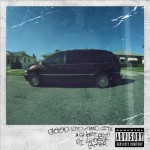It isn’t love until you commit your mind, body and soul. Therefore, I cannot claim that I loved Kendrick Lamar’s newest album, “good kid, m.A.A.d city,” but I got pretty close.
He killed his competition with the debut of this album and made me re-evaluate what a truly thoughtful rap album could sound like. His unrivaled storytelling abilities are what set him apart from many of the modern rappers coming up in the game. It is this same game in which real emcees and lyricists find it hard to sell records, but Lamar seems to be the exception with this album.
But it’s really his raw voice and genuine passion for the art that is magnified through the many twists and turns Lamar takes us on, in his rough and often bumpy journey through his childhood and beyond, leaving us without a seat belt and not a clue of our destination.
The album delves into Lamar’s mind, a mind often contaminated with the pressures of the world, evident through his use of altered voices featured on tracks such as “Backseat Freestyle,” “Swimming Pools” and “m.A.A.d city.”
Throughout the 12 songs, Lamar describes his evolution from being a good kid in Compton to his self-awakened present self, more aware of the world. He really captures his essence as both a kid and as an adult. His narrative is cohesive and his rhymes spiteful, recounting the gang violence and criminal activity that defined much of his childhood space.
One particular track that stood out among the multitude of rhymes, chants and bars is “The Art of Peer Pressure,” which alludes to “good kid, m.A.A.d city” being played out as a short film about his life, an angle Lamar talked about in his interviews.
Visually, I imagined a group of kids driving down Rosecrans Avenue smoking and drinking orange soda. This image gradually turns into one of misadventure as Lamar delves deep into thought and introspection about being good kids from Compton corrupted by situational distress and a dysfunctional environment that quickly spiraled into a drug-induced nightmare.
“Sing About Me, I’m Dying of Thirst” is another song that cannot go unnoticed, in what is seemingly the emotional peak of an emotionally contagious album. Lamar starts off recalling a conversation he had with his friend: “And if I die before your album drop, I hope —” which ends in three gunshots before the sentence even finishes. This underrated moment serves as a backdrop for the alcoholic culture and a crisis of character he undergoes: “Tired of running,” he spits, “Tired of hunting/ My own kind.”
What really drew me into the song was not his lyrical mutiny, but rather the way he split up his flow in the second half of the 12-minute song. It adds to the power of the song and allows time for the lyrics to soak in.
A successful album of any genre should be able to capture your full attention and sustain it. “Good kid, m.A.A.d city” did much more than that for me, combining Lamar’s wittiness, absurdity, whimsicality and realness.
Listening to “good kid m.A.A.d city” as a collection gave me the feeling you get when your heart is beating faster than it should, when your eyebrows are at its peak, and when your eyes are wide open, to the point where it looks like you’re taking a magnifying glass to your cornea.
It takes us to a different world and feeds our need for fantasy and an escape from real life, only it’s at Kendrick Lamar’s expense; our pursuit for good music is a product of Lamar’s stark reality.
So go on, pop on your headphones. Take a stroll through the mad city and you won’t be disappointed.
“Stuff from the Shelf” is a Spotlight blog series in which Daily Bruin A&E reviews the albums and games that have been sent to us for reviews over the years.
